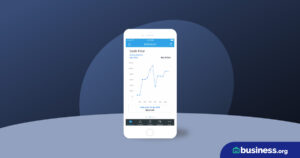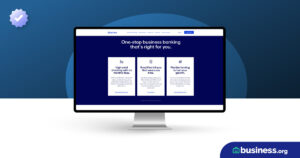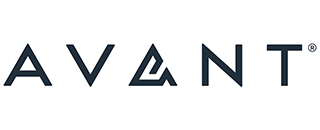💸 See if your business qualifies for a tax credit worth up to $26k per employee. 📞 Call Now: 855-979-9597
What Type of Loan Is Best for Your Small Business?
We are committed to sharing unbiased reviews. Some of the links on our site are from our partners who compensate us. Read our editorial guidelines and advertising disclosure.
When you need financing for your business, finding the right lender is critical. But before you even start looking for a lender, you need to make sure you're choosing the right type of loan.
In this article, we'll start by overviewing the main loan options available to small-business owners. Then, we'll give you some tips that can help you decide which option is the best for your needs.
Let's find your ideal financing match.
How to assess your small-business loan options
Before we dive into the main types of small-business loans, let's talk about what you should look for while evaluating your loan options.
First, you should know that you might not qualify for every type of loan. For instance, with many term loans, you must show proof of revenue and have been in business for at least a year. If you're a first-time business owner and haven't yet opened your doors, you might be able to use a business credit card—but other types of small-business loan options could be off the table for you. (Personal loans are one of the main ways first-time business owners finance their businesses.)
Next, you need to consider each loan type's terms and requirements—as well as your specific needs and requirements. Pay particular attention to the following:
- Borrowing limits, both the minimum and maximum
- Loan terms
- Interest rates, including whether they're fixed or variable
- Collateral requirements
- Additional loan fees, including monthly maintenance fees, early repayment fees, and more
Finally, pay particular attention to what type of collateral your loan requires. Most notably, make sure you're aware of whether a loan requires a personal guarantee or a Uniform Commercial Code (UCC) lien.
A personal guarantee makes you personally responsible for the debt you incur on your business's behalf. In contrast, a UCC lien gives a lender a blanket right to your business assets if you default on a loan. Most lenders, including traditional lenders like banks and credit unions, usually require a personal guarantee on most loans.
By signing up I agree to the Terms of Use.
What are the main small-business loan options?
Business financing isn't a one-size-fits-all situation, and the type of funding that works for one business may not be the best choice for another. But what types of funding are even available to you? Let's overview the eight most popular small-business loan options.
Term loans
With a term loan, you borrow a lump sum of money that the lender gives you upfront. You then repay that loan over a set term at regular intervals. Along with repaying the principal, or the initial loan amount you receive, you'll pay interest on the loan.
Depending on the loan and lender, your interest rate may be fixed or variable. A fixed rate stays the same over the duration of the loan repayment term, while a variable interest rate . . . well, it varies. (Fixed rates are obviously preferable, since varied interest rates can start out low and end up incredibly high towards the end of your term.)
The term of your term loan can also vary depending on your lender, loan amount, and small-business funding needs. Short-term loans are typically repaid within 3 to 18 months. Long-term loans can have repayment periods of anywhere from 5 to 25 years.
US Small Business Administration (SBA) loans
SBA loans are term loans partially guaranteed by the US Small Business Administration. With these types of loans, you don't borrow money directly from the US government—instead, you work with a traditional lender like a bank to secure a loan. Next, the lender (not you!) will request a loan guarantee from the federal government.
This loan guarantee means the SBA will pay the lender the balance if you have to default on the loan. However, if you default, you aren't exactly free and clear. Instead, your assets will serve as collateral in the case of a default.
The COVID-19 crisis caused some critical changes to the typical SBA loan process. As of May 2022, though, most SBA loan processes have gone back to normal. SBA 7(a) loans can qualify you for up to $5 million, while SBA 504 can get you up to $5.5 million.
If you want to learn more about getting an SBA loan, check out our SBA loan how-to guide.
Inventory financing
Inventory loans allow you to borrow money for your business to purchase stock or inventory. The goods you purchase serve as collateral for your loan—if you default, the lender will reclaim the inventory. This means you don't need to use any personal assets as collateral, but it also means inventory loans tend to have higher interest rates.
Inventory loans are usually short-term loans. In fact, they're most commonly used by retailers and wholesalers that experience seasonal fluctuations in sales. Typically, you'll repay the inventory loan using your business's cash flow as you sell the inventory that the loan allowed you to purchase.
Accounts receivable financing
Accounts receivable (AR) is an asset account in your general ledger that tracks the money your customers pay you for goods and services. Unfortunately, as you likely already know, not all of your customers will follow through on paying the money they owe you. And when customers fall short, your business loses money—which means if customers don't pay, your business could fail through no fault of your own.
Accounts receivable financing, sometimes call invoice financing, is a method of borrowing against your outstanding invoices. In the simplest terms, a lender gives you the cash value of your outstanding invoices so you can maintain a consistent cash flow while waiting for customers to pay. The invoices themselves serve as collateral.
As with inventory loans, accounts receivable loans are typically short-term loans.
Equipment financing
If you need money specifically for equipment like heavy machinery, specialized equipment unique to your industry, or even office furnishings for your employees, you might qualify for a short-term equipment financing loan. The equipment you purchase with the loan will usually serve as collateral. Depending on the lender, loan amount, and term, you may be able to finance 100% of your equipment purchase upfront.
Business lines of credit
If you need the flexibility of a revolving line of credit rather than a one-time lump sum, a business line of credit could be a better fit for you than a term loan. Lines of credit may be secured or unsecured and have a fixed or variable interest rate. You only pay interest on the portion of the credit line you use, and unlike a business credit card, you can usually repay your line of credit on a variable rather than fixed schedule.
Business credit cards
Like a personal credit card, a business credit card can help you cover short-term expenses while giving you access to rewards programs and other perks. Depending on the credit card, you'll probably have a lower credit line than you would with other options (including with a business line of credit). You might also have a higher interest rate, though just like other types of business loans, business credit cards can be secured or unsecured.
Merchant cash advances
A merchant cash advance provider offers you a set amount of money based on your credit and debit card sales. You then repay the advance from your future sales on a daily basis.
Merchant cash advances often have extremely high interest rates and strict repayment terms. Honestly, we don't recommend them unless they're absolutely necessary. Most business owners should consider every other loan option on this list before turning to a merchant cash advance to help solve cash flow issues.
What questions should you ask before applying for a loan?
Okay, now you've got the gist of the main types of small-business loans. But before you start reaching out to lenders, you need to ask a few key questions to pinpoint which lenders to get in touch with:
- Why do you need small-business financing? For instance, are you hoping to cover equipment expenses, deal with unpaid invoices, or invest a lump sum into growing your business? The reason you need small-business financing should help determine which loans you apply for.
- How much money do you really need? While you definitely want to borrow enough money for your needs, you should also avoid borrowing too much money. For one thing, the larger your principal, the more you'll pay in interest as well. For another, you can't afford to take out a loan you're not sure you can repay. Instead of applying for the maximum amount a lender offers, sit down and figure out the ballpark amount of money you need, then apply.
- How long do you think the loan will take you to repay? Before taking out a loan, look at your current financials and assess your business plan to get a general sense of when you think you can repay the loan's full amount. (Remember to account for interest payments and other fees.) You'll need to include the expense of paying back the loan in your financial planning for the year to ensure you really can afford the cost of the loan.
- What kind of repayment schedule best fits your cash flow? Do you have a steady enough cash flow that you can repay the loan on a fixed schedule, or do you need a more flexible loan option so you can repay in your own timeframe?
- Do you want a secured or unsecured loan? An unsecured loan doesn't require you to provide any collateral, but these types of loans typically have shorter repayment terms with higher interest rates. But if you don't have (or aren't willing to) put up collateral, an unsecured loan could be the right choice for you.
The way you answer these questions should help you narrow down which small-business financing option will best meets your needs. Your answers can also help you avoid a loan mismatch—which is crucial to saving time and money.
What are the loan qualification requirements?
Each of the loan types listed above has its own requirements when it comes to things like minimum credit scores, time in business, and annual revenue. Not only that, but each lender has different requirements for the same type of loan. You should only apply for loans you're likely to be approved for—otherwise, you're wasting time and effort that could be better spent on another aspect of your business.
Before applying for a loan, then, review your business and personal credit scores as well as your business financials. You'll want to generate key financial documents, especially an income statement, cash flow statement, and balance sheet to see where you stand. (You can draw up these documents with accounting software, or you can work with an accountant or bookkeeper who can prepare them on your behalf.) Many lenders ask to see these documents during the application process, so having them prepared can speed up your approval.
The takeaway
Once your loan application is approved, go over the fine print before agreeing to the loan terms. Take note of how much the loan will cost you in interest and fees. Review your cash flow to make sure you can sustain the estimated monthly payment obligation. Check for a personal guarantee or lien requirement. The better you understand your loan terms, the smoother the business financing process is likely to be.
Now that you know which type of loan is right for you, it's time to find the right lender. Check out our guide to the top small business loan providers to get started.
Related reading
Disclaimer
At Business.org, our research is meant to offer general product and service recommendations. We don't guarantee that our suggestions will work best for each individual or business, so consider your unique needs when choosing products and services.






